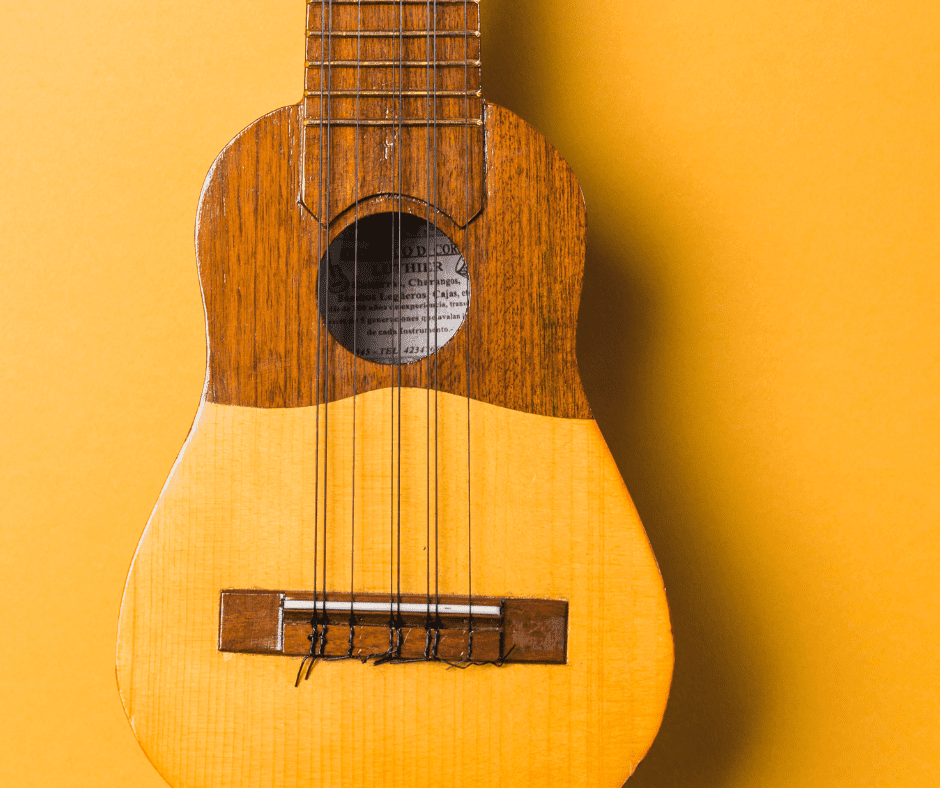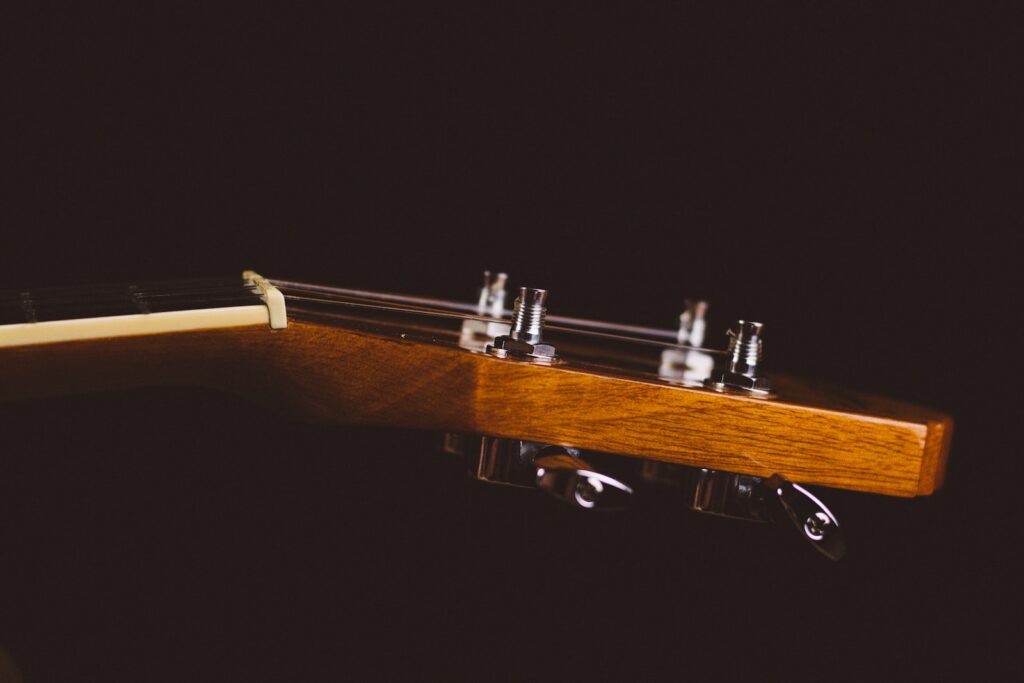The cost to restring a ukulele typically ranges from $4 to $20 for the strings alone. A professional restringing service may charge an additional $10 to $40 for labor.
In the meantime, don't forget to unlock a world of unlimited sound with Amazon Music Unlimited, where over 100 million songs wait at your fingertips. Whether you're working, relaxing, or fueling your creativity, the right track is always just one tap away. Elevate every moment with music that moves you.
Restringing a ukulele is an essential part of maintenance that ensures the instrument produces its best sound. As a ukulele enthusiast, you might wonder about the costs associated with replacing old strings. The pricing largely depends on the quality of the strings chosen and whether you restring the ukulele yourself or seek professional help.
High-quality strings can enhance the tonal quality and playability of your instrument. Players often choose to restring their ukuleles to try different sounds, for routine maintenance, or to replace broken strings. Although it’s a relatively inexpensive aspect of ukulele upkeep, the choice of strings and service can impact the overall cost and sound of your instrument. Remember, a fresh set of strings can breathe new life into your ukulele’s performance.
The Anatomy Of Ukulele Strings
Ukulele strings play a vital role in the instrument’s sound and playability. They come in various types and materials, affecting both cost and performance. Let’s delve into what makes these strings unique!
Type Of Ukulele Strings
Strings are crucial for that perfect ukulele sound.
- Nylon strings are common and affordable.
- Fluorocarbon strings offer a bright tone and durability.
- Wound strings are often used for the lower notes.
- Gut strings provide a warm tone but can be pricey.
Life Expectancy Of Strings
The lifespan of ukulele strings depends on various factors.
| Material | Life Expectancy |
|---|---|
| Nylon | 4-6 months |
| Fluorocarbon | 6-12 months |
| Wound | 2-4 months |
| Gut | 3-5 months |
Regular play and cleaning can extend string life. Climate and usage also influence longevity.
Determine Your Needs
Before diving into the costs of restringing a ukulele, understand what you really need. Each player and each ukulele is unique. So, your specific needs define the cost to some extent. The type of strings and frequency of play affect when and how you should restring your instrument.
Assessing String ConditionAssessing String Condition
Look at your ukulele strings. Are they frayed or discolored? Check for any signs of wear or damage. Bold strings indicate a change is due soon. Signs to look for include:
- Dull, lifeless sound output
- Visible wear like thinning or fraying
- Difficulty in tuning or staying in tune
Playing Style And String Preferences
Your playing style matters. Strummers and finger-pickers need different types of strings.
For strumming, consider brighter sounding strings. For fingerpicking, strings with more grip might suit better. Preferences vary, so think about:
- String gauge
- Tone quality you desire
- Material preference (nylon, fluorocarbon, etc.)
Select strings that match your playing style and sound preference. This choice directly influences the cost.
Cost Factors For Restringing
Do you have a ukulele that needs new strings? The cost to restring a ukulele can vary. Different factors can change the price. Let’s look at these factors.
String Quality And Brand
The strings you choose will affect the cost. High-quality strings from well-known brands will cost more. Cheap strings are available, but they might not sound as good. Here are some things to know about string prices:
- Basic nylon strings can be quite affordable.
- Premium strings made of unique materials can cost notably more.
Professional Vs. Diy Restringing
Deciding between professional restringing and doing it yourself is important. Here’s what to consider:
- Professional restringing means paying for their time and skills.
- DIY restringing is cheaper. You only pay for strings. You will need to learn how to do it.
Geographical Pricing Variations
Where you live can change the restringing cost. Some areas have higher costs for services. Here’s a simple way to understand this:
- Cities may have higher costs than small towns.
- Travel distance to a music shop can add to your costs.
Now you know the main factors for ukulele restringing costs. Quality strings, choosing to DIY, and where you live will all make a difference. Consider these before getting your ukulele restrung.

Credit: newuke.com
Step-by-step Restringing
Giving your ukulele new strings brings back its lively sound. Whether your strings broke or just lost their tone, restringing can be simple and affordable. By following these steps, you can restring your ukulele without fretting over the cost.
Gathering The Right Tools
Ensure you have the right tools before you start. You need:
- New ukulele strings
- A wire cutter for trimming strings
- A string winder, optional but handy
Pick strings that fit your ukulele type. Soprano, concert, and tenor ukuleles have specific string sizes.
The Restringing Process
- Remove old strings by loosening them and pulling out.
- Clean your ukulele. Dust often settles where strings lie.
- Attach new strings to the bridge. Tie a knot or use the bridge pins.
- Guide the string to the tuning peg. Leave a bit of slack for winding.
- Wind up. Tighten each string using a winder or your hand.
- Trim excess. Snip the ends with wire cutters for a clean look.
Take your time. Rushing may cause knots or uneven tension.
Tuning And Settling In
Tune your ukulele after strings are in place. A tuner helps hit the right notes.
Strings need to stretch and settle. Play and retune often for a few days.
After a week, strings will stabilize. Your ukulele’s ready for serenades and solos.
Where To Get Your Ukulele Restrung
Strumming a ukulele with fresh strings is a joy for any musician. Knowing the right place to get your instrument restrung is vital. Explore options from local shops to online services. Find the perfect fit for your ukulele restringing needs.
Local Music Stores
Local music stores are a treasure trove for ukulele care. They often offer:
- Expert advice from experienced staff
- Quality strings selection
- Restringing services with a personal touch
Prices vary, so call ahead for the best deal. Check store reviews online to ensure quality service.
Online Services
You can also choose online restringing services. They offer:
- Convenience
- Competitive pricing
- Mail-in options
Opt for reputed sites with clear pricing and return policies. Read customer feedback for confidence.
Community Workshops
Look for community workshops in your area. They can be economical and support local musicians. Workshops offer:
- Hands-on assistance
- Guidance from fellow ukulele enthusiasts
- Occasional free or low-cost services
Check local listings or music forums for upcoming events. Engage with the community while getting your ukulele restrung.

Credit: ukulelemagazine.com
Maintaining Your Ukulele Strings
Your ukulele brings melody to life. Like any instrument, it deserves proper care. The string condition is crucial for sound quality. The cost info is necessary, but knowing string maintenance can save money. Let’s dive into tips!
Regular Cleaning
Keeping strings clean is essential. Our fingers leave oils, dirt, and sweat on the strings. This can cause them to wear out faster.
- Wipe strings with a dry cloth after playing.
- Use a string cleaner for a deeper clean.
Proper cleaning extends string life. It makes them sound brighter, too.
Proper Storage
Store your ukulele wisely. Temperature and humidity affect strings. They can lose tune or even snap if not cared for.
Avoid extremes:- Keep away from radiators and windows.
- Use a case with humidity control.
This keeps strings in good shape, preserving the ukulele’s life.
When To Consider Restringing
Sometimes new strings are the answer. Look out for signs. Here are key indicators:
- Tuning problems that persist.
- Visible wear or discoloration.
- Flat or dull sound when playing.
Restringing isn’t costly if done right. It enhances your music journey. So, maintain strings and seek restringing when needed.

Credit: www.anitacollinsmusic.com
Can I Expect to Pay the Same Price to Restring a Ukulele at Guitar Center?
When considering instrument maintenance, many wonder, “Can I expect to pay the same price to restring a ukulele at Guitar Center?” Prices vary based on the type of strings and labor. It’s best to inquire directly, as guitar center ukulele restring services may offer competitive rates tailored to your needs.
Frequently Asked Questions Of How Much Does It Cost To Restring A Ukulele
Is It Hard To Restring A Ukulele?
Restringing a ukulele is not overly difficult. With the right tools and instructions, beginners can usually learn the process quickly. Practice and patience are key to mastering restringing.
How Often Should Ukulele Strings Be Changed?
Change ukulele strings every 3 to 6 months, or whenever they sound dull, feel rough, or lose tuning stability. Regular players may need more frequent changes.
How Do I Know If My Ukulele Needs New Strings?
Your ukulele may need new strings if they appear discolored, feel rough, sound dull, or tuning becomes difficult. Noticeable fraying or a decrease in playability also indicates it’s time to replace them.
Where Can I Change My Ukulele Strings?
You can change your ukulele strings at home or visit a local music store for assistance. Ensure you have the right strings and tools before starting the process.
Conclusion
Restringing a ukulele varies in cost, hinging on string quality and labor fees. For beginners, budget-friendly options abound. Seasoned players might opt for premium strings, adjusting the budget accordingly. Embrace the harmony of fresh strings to revitalize your ukulele’s sound.
Take the step; your melody awaits rejuvenation.
{ “@context”: “https://schema.org”, “@type”: “FAQPage”, “mainEntity”: [ { “@type”: “Question”, “name”: “Is it hard to restring A ukulele?”, “acceptedAnswer”: { “@type”: “Answer”, “text”: “Restringing a ukulele is not overly difficult. With the right tools and instructions, beginners can usually learn the process quickly. Practice and patience are key to mastering restringing.” } } , { “@type”: “Question”, “name”: “How often should ukulele strings be changed?”, “acceptedAnswer”: { “@type”: “Answer”, “text”: “Change ukulele strings every 3 to 6 months, or whenever they sound dull, feel rough, or lose tuning stability. Regular players may need more frequent changes.” } } , { “@type”: “Question”, “name”: “How do I know if my ukulele needs new strings?”, “acceptedAnswer”: { “@type”: “Answer”, “text”: “Your ukulele may need new strings if they appear discolored, feel rough, sound dull, or tuning becomes difficult. Noticeable fraying or a decrease in playability also indicates it’s time to replace them.” } } , { “@type”: “Question”, “name”: “Where can I change my ukulele strings?”, “acceptedAnswer”: { “@type”: “Answer”, “text”: “You can change your ukulele strings at home or visit a local music store for assistance. Ensure you have the right strings and tools before starting the process.” } } ] }As an Amazon Associate, Cleanestor earns from qualifying purchases at no additional cost to you.

